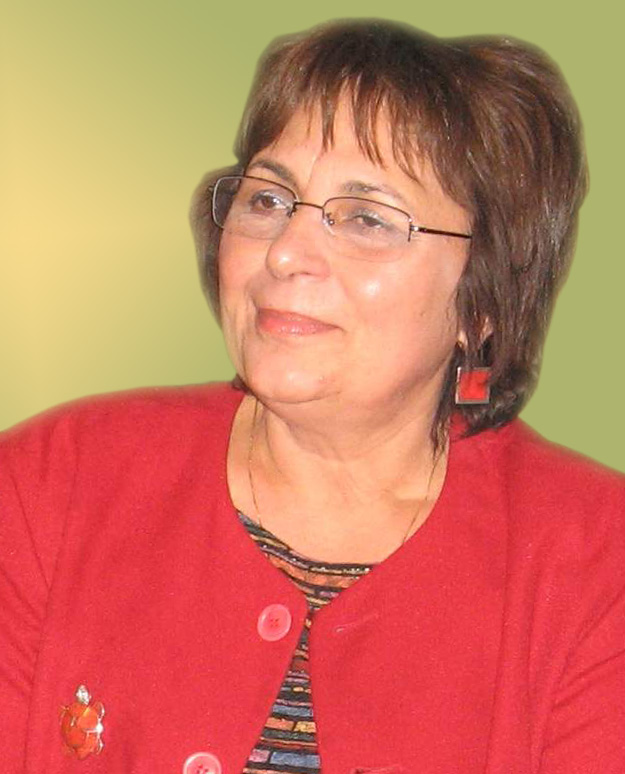- Gabriela Adameşteanu
Infobox Writer
name = Gabriela Adameşteanu

caption = Gabriela Adameşteanu in 2005, photograph by Victor Jalbă
pseudonym =
birthname =
birthdate = Birth date and age|1942|4|2|mf=y
birthplace =Târgu Ocna
deathdate =
deathplace =
occupation = novelist, short story writer, essayist, journalist
nationality =Romania n
period = 1975–
genre = Realism
subject =
movement =
influences =
influenced =
website =Gabriela Adameşteanu (born April 2, 1942) is a
Romania n novelist, short story writer, essayist, journalist, and translator. The author of the celebrated novels "The Equal Way of Every Day " (1975) and "Wasted Morning " (1983), she is also known as an activist in support ofcivil society and member of the Group for Social Dialogue (GDS), as well as editor of "Revista 22".Biography
She was born in
Târgu Ocna as the daughter of Mircea Adameşteanu, a high school history professor, and Elena, ahome economics teacher who lost her position when her subject matter was removed from the curriculum by Communist authorities and she had to work in akindergarten . A brother of Mircea Adameşteanu's became apolitical prisoner of the Communist regime; another, the renowned archaeologistDinu Adameşteanu , had taken refuge inItaly .Gabriela Adameşteanu lived much of her youth in
Piteşti . In 1960-1965, she attended theUniversity of Bucharest 's Faculty of Literature, graduating with a thesis onMarcel Proust , and made her debut with a short prose piece in 1971. Adameşteanu was employed by theEditura Politică department that was to become, in 1966, theEditura Ştiinţifică şi Enciclopedică publishing house , and began contributing to majorliterary magazine s ("Viaţa Românească " and "România Literară "). After 1983, she worked as an editor forCartea Românească , were she made efforts to preserve literary standards in front of a new wave ofcensorship under theNicolae Ceauşescu regime.She married Gheorghe-Mihai Ionescu and gave birth to a son, Mircea Vlad Ionescu, in 1968.
"Drumul egal al fiecărei zile" ("The Equal Way of Every Day"), a story alluding to
intellectual survival in a provincial environment during the aggressive Stalinist 1950s, won her critical acclaim and theRomanian Academy prize. In 1979, she published a series of short stories under the title "Dăruieşte-ţi o zi de vacanţă" ("Offer Yourself a Day Off"), which expanded on the themes of "The Equal Way". During the same year, in August, she traveled to thePeople's Republic of Poland , where she witnessed the mood encouraged by the visit ofPope John Paul II (according to her recollections, it was "a magic sentiment of human dignity"). [Adameşteanu, "Nu vă fie frică!"]With "Dimineaţă pierdută" ("Wasted Morning"), a complex novel centered on an apparently banal conversation between two women, discreetly but fastidiously reconstructing the tragic end of the interwar generation, Adameşteanu was awarded the Writers' Union prize and was confirmed as one of the most important Romanian authors of the 1980s. "Wasted Morning" was set to stage by
Cătălina Buzoianu in 1987, becoming the center of interest at a time when the Ceauşescu regime had entered its more repressive phase. ["Les Belles Etrangères"]In 1989, a short while before the Romanian Revolution, she and other writers sent a letter of protest to the Communist leadership over the worsening conditions of life; she resigned from her position at Cartea Românească. In 1990, she joined GDS, and became editor of its magazine, "22", the following year.
Her other literary works include "Vară-primăvară" (a collection of short stories published in 1989), "Obsesia politicii" (interviews with post-1989 political figures, 1995), "Cele două Românii" (essays, 2000), and the 2003 novel "Întâlnirea". She has translated into Romanian
Guy de Maupassant 's "Pierre et Jean " andHector Bianciotti 's "Sans la miséricorde du Christ". ["Les Belles Etrangères"]Work
Adameşteanu's work, which has been described as realist and, alternatively, as "hyperrealist", [Ioanid] is noted for its portrayals of humanity decaying under the leveling pressure of mundane reality. [Ioanid; Simuţ] In this respect, critics have rated her literature among the major accomplishments of her generation (alongside the similarly-themed novels and short stories of
Norman Manea ,Bedros Horasangian ,Alexandru Papilian , andMircea Nedelciu ). [Simuţ]Her powerful depictions of values becoming debased (under the pressure of
totalitarianism ) relies on the use of competing narratives and voices [Ioanid; Ionescu] (aspects of which include those of young civil servants who find themselves overwhelmed by mediocrity, daughters pressured by social priorities into not mourning their parents, and unhappily married women). [Simuţ] Adameşteanu's accuracy in expressing various patterns of speech and behavior has itself drawn acclaim. [Ioanid; Ionescu]Notes
References
* [http://www.bookrags.com/biography/gabriela-adamesteanu-dlb/ Magda Cârneci, "Gabriela Adameşteanu" on "Dictionary of Literary Biography"]
* [http://www.wordswithoutborders.org/bio.php?author=Gabriela+Adamesteanu "Gabriela Adameşteanu" on "Words Without Borders"]
* [http://www.belles-etrangeres.culture.fr/Gabriela-ADAMESTEANU "Les Belles Etrangères": Meeting 12 Romanian Writers]
* [http://www.polirom.ro/autori.cgi?action=autori&class=details&id=1071 Short biography at Polirom.ro]
* [http://www.stilus.ro/librarie/dimineata-pierduta-p-1974.html "Wasted Morning" - description and author's note, at Stilus.ro]
* [http://www.revista22.ro/html/index.php?nr=2005-04-15&art=1654 Gabriela Adameşteanu, "Nu vă fie frică!" ("Don't Be Afraid!")] , in "22", April 2005
* [http://www.observatorcultural.ro/informatiiarticol.phtml?xid=15677&print=true Doina Ioanid, "Un portret în mişcare" ("A portrait in Movement"), in "Observatorul Cultural"]
* [http://www.unibuc.ro/eBooks/filologie/dindelegan/41.pdf Adina Ionescu, "Aspecte ale limbajului femeilor în romanul "Dimineaţă pierdută" de Gabriela Adameşteanu" ("Aspects of feminine dialogue in Gabriela Adameşteanu's novel "Wasted Morning"); PDF file]
* [http://ziua.ro/display.php?id=112766&data=2003-03-17&ziua=527c2675deb1cf0b1b6efa75f0798ca5 Ion Simuţ, "Durerile mici" ("The Small Pains")] , in "Ziua ", March 17, 2003External links
* [http://www.wordswithoutborders.org/article.php?lab=Coriolan "Strada Coriolan", excerpt from "Wasted Morning" on "Words Without Borders"; translated by Patrick Camiller]
* [http://www.revista22.ro/html/index.php "22" Online archive]
* [http://www.literaturfestival.com/bios1_3_6_1121.html Biography at the Berlin International Literature Festival]
* [http://www.romanianwriters.ro/author.php?id=13] Contemporary Romanian Writers
Wikimedia Foundation. 2010.
